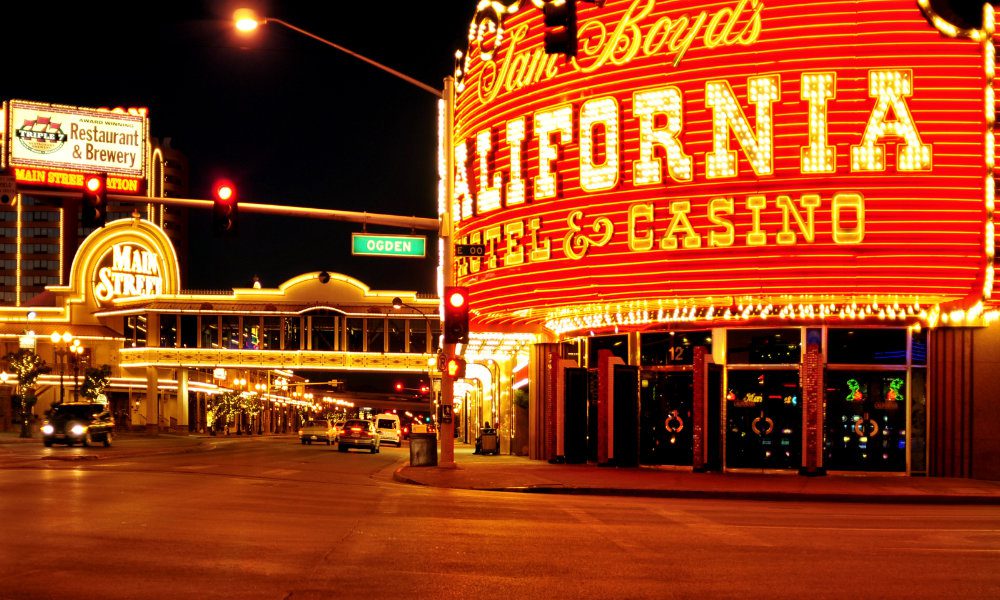Boyd Gaming on Thursday told Wall Street analysts that there’s a big difference between neighborhood casinos showcasing continued strength over those properties on the Strip seeing fewer visitors and reduced hotel occupancy.
Boyd released its second quarter earnings that showed the Las Vegas locals segment achieved its strongest quarterly growth in more than two years with year-over-year growth in both revenue and adjusted EBITDAR, while segment margins were nearly 50%.
That announcement comes as the company led its earnings call summing up an agreement to sell its 5% stake in FanDuel Group to its parent Flutter Entertainment for $1.755 billion in cash – a deal in which both companies extend their market-access agreements for mobile sports betting and online casinos through 2038 and Boyd takes back operation of its retail sportsbooks outside of Nevada in 2026.
The transaction announced two weeks ago is expected to close within several weeks. The proceeds will be used to pay down debt.
Under terms of the revised market-access agreements with FanDuel, the company now expects its online segment will generate $50 million to $55 million in operating income and adjusted EBITDAR for the full year 2025 and about $30 million in 2026.
“As a result of this transaction, our company is in an even stronger financial position to continue executing our strategy of investing in our properties, pursuing attractive growth opportunities, returning capital to shareholders and maintaining a strong balance sheet,” said Boyd Gaming President and CEO Keith Smith.
Smith touted the deal of how Boyd had invested $10 million that turned into $1.75 billion.
“We’ve created nearly $2 billion in value for our shareholders, all from a $10 million investment. Pretty fair return I think.”
Chief Financial Officer Josh Hirsberg said the transaction further enhances their financial flexibility. Of the $1.755 billion in proceeds, he said after-tax proceeds will be about $1.4 billion or $17 per share. It will help save $85 million in interest payments.
Wall Street analysts questioned Boyd executives about what the cash meant for other growth opportunities, including mergers and acquisitions.
“We assumed there would be some discussion around the FanDuel transaction on this call,” Smith said. “This FanDuel transaction is not a precursor to another transaction. Flutter and FanDuel have done a remarkable job over the last seven years in becoming the industry leader in online sports betting and casino. They’ve created tremendous value for themselves and us.”
Smith said the stock price, however, hasn’t reflected the “true price” for the investment and, as a result, as they approached the end of their partnership it was time to monetize the investment and focus on future growth.
“It’s our turn to take advantage of the investment and invest in the future of our company,” Smith said. “While we’re initially reducing debt, our goal is to deploy this new capital to attractive and higher returning investment to support the long-term growth of the company. We’re confident in our ability to do so.”
Smith then asked the analysts to focus their questions during the earnings call on the second quarter results rather than the FanDuel sale.
Smith called the second quarter results strong, with revenues and adjusted earnings growing 4%. It was due to broad-based growth across their operating segments, including online and managed segments. He said the property that struggled the most was The Orleans west of the Strip that relies on tourists as a destination resort.
“We remain confident in the prospects of the Southern Nevada economy and future of our locals business,” Smith said.
In downtown, Smith said last year’s second quarter benefitted from pent-up demand from Hawaiian customers. For the first six months of the year, revenue and adjusted earnings were up more than 1% over the first six months of 2024.
In the Midwest & South segment impacted by flood-related closures with revenue and adjusted earnings of more than 3%. It was the highest quarterly revenue and adjusted earnings in nearly three years.
“Similar to the Las Vegas locals segment, we continue to see strong play from our core segment during the second quarter, while play from retail customers also improved,” Smith said.
During the second quarter, the company saw a pickup in unrated as customers stay closer to home, including at regional properties, Hirsberg said.
“Whether it is sustainable or not, we need to see another quarter or two,” Hirsberg said. “But there’s no doubt that’s what showed up and pivoted retail to be much more of our customer base. In Las Vegas, we have seen a softness on the Strip and destination business. We’re seeing that at our business at the Orleans. We haven’t seen the same level of demand we’ve seen for a destination business, but that’s more than made up by retail and drive-in business showing up in that unrated segment. For our business to work, we’ve had a consistent core customer, and we’ve been waiting for the retail customer to really come back into fray. The second quarter was driven by unrated business to where they showed up.”



